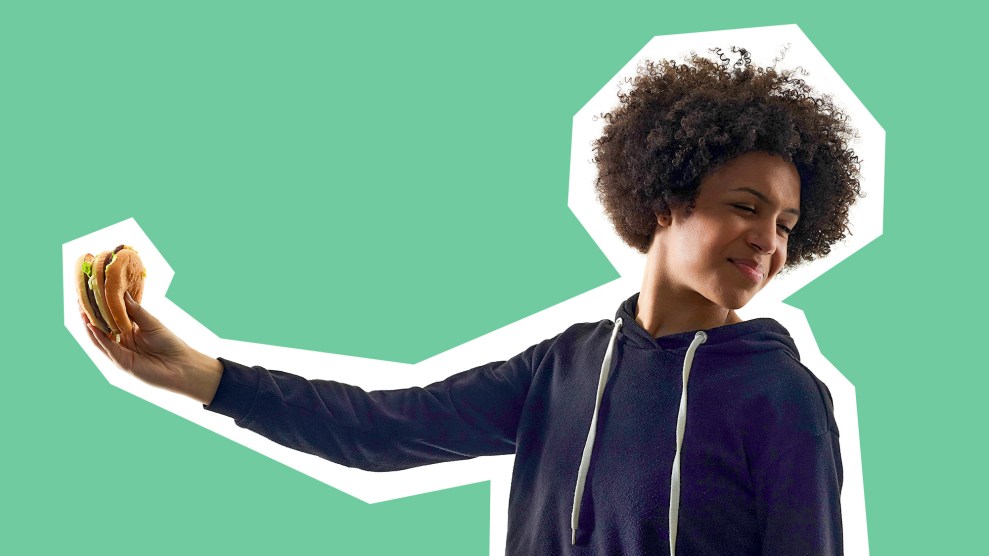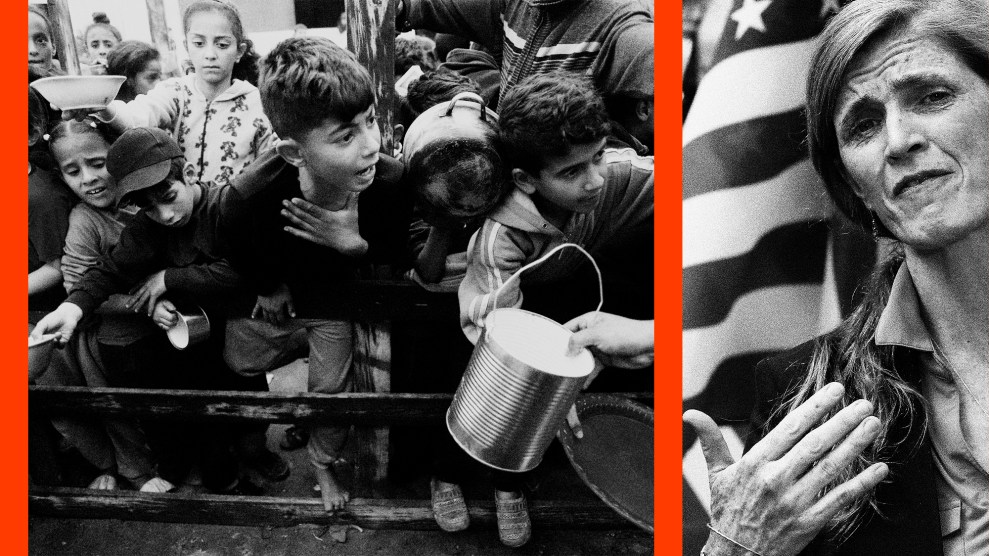
Mother Jones; OSTILL/Getty Images
There’s no official census of vegetarians in the United States, but there are signs that more Americans are cutting meat out of their diets. A whopping two-thirds of Americans surveyed in 2015 said they were reducing meat consumption, mostly of red and processed meats, according to the journal Public Health Nutrition.
Restaurants have sensed the shifting tastes: Nestlé told investors last year that it was looking to expand its plant-based offerings to meet rising consumer interest. Last year, Grubhub reported in its midyear report that vegan food orders rose 19 percent in the first six months of the year, and predicted that entrees like jackfruit and cauliflower steaks would be huge in 2018. The plant-based Impossible Burger surprised people with its meaty flavor and texture, even sneaking its way into White Castle’s menu where it was quickly hailed as a success by Eater, corroborated by good marks from Food & Wine and The New Yorker.
Chefs like Amanda Cohen, who owns and operates the acclaimed all-vegetarian restaurant Dirt Candy, and Brooks Headley, whose fast casual restaurant Superiority Burger had 2015’s Best Burger of the Year according to GQ, have been key players in revamping the vegetarian meal’s bland connotations. “Over the course of the last seven years, what’s happened is more and more restaurants are saying, ‘Hey, vegetables are something that we want to have fun with, that we want to play with. Let’s experiment with it, we’re tired of bacon,'” Cohen told Eater.
People tend to cite health, animal welfare, and finances as their main reasons for turning away from meat, according to a 2016 Harris Poll commissioned by the nonprofit Vegetarian Resource Group. But some stories aren’t so predictable. I went vegetarian for a year when meat randomly started tasting disgusting to me. As he recounted on our food politics podcast Bite (at the beginning of the episode in the player above), Mother Jones’ Director of User Experience Adam Schweigert stopped eating animals after an argument with a former partner about the dog sleeping in the bed—and ended up meat-free for about seven years.
Why did you cut meat out of your diet? Tell us what convinced you to become vegetarian or vegan—even if it didn’t stick—by filling out the form below or calling us at 510-519-MOJO and leaving a message. We might include your response on our website or in an upcoming episode of Bite.












